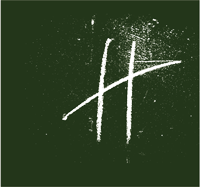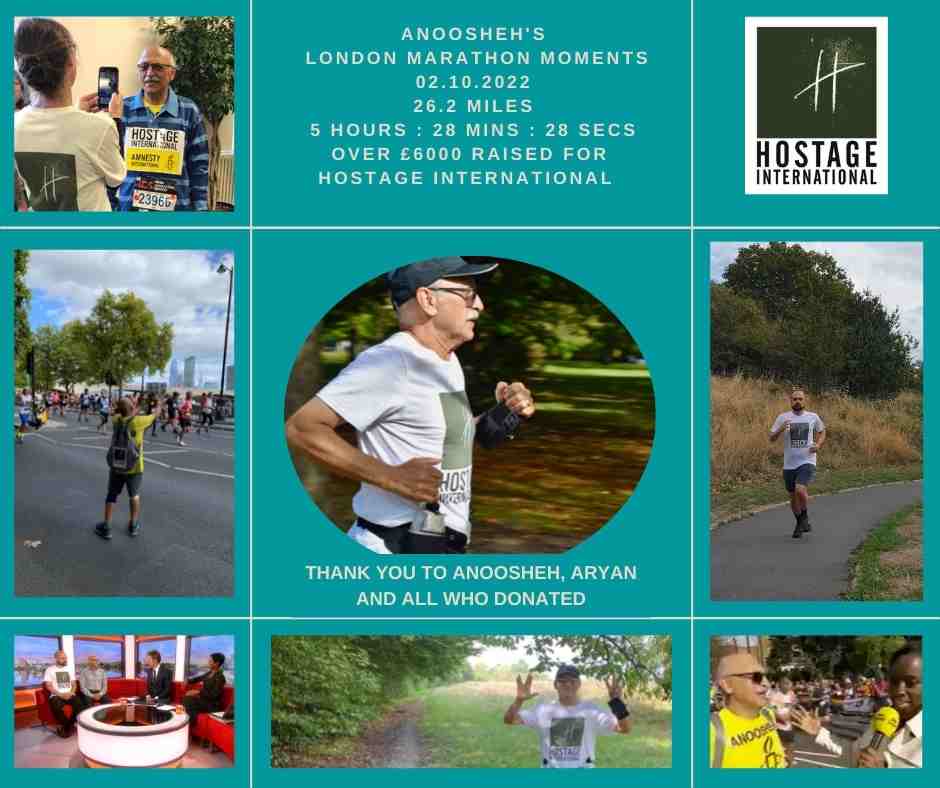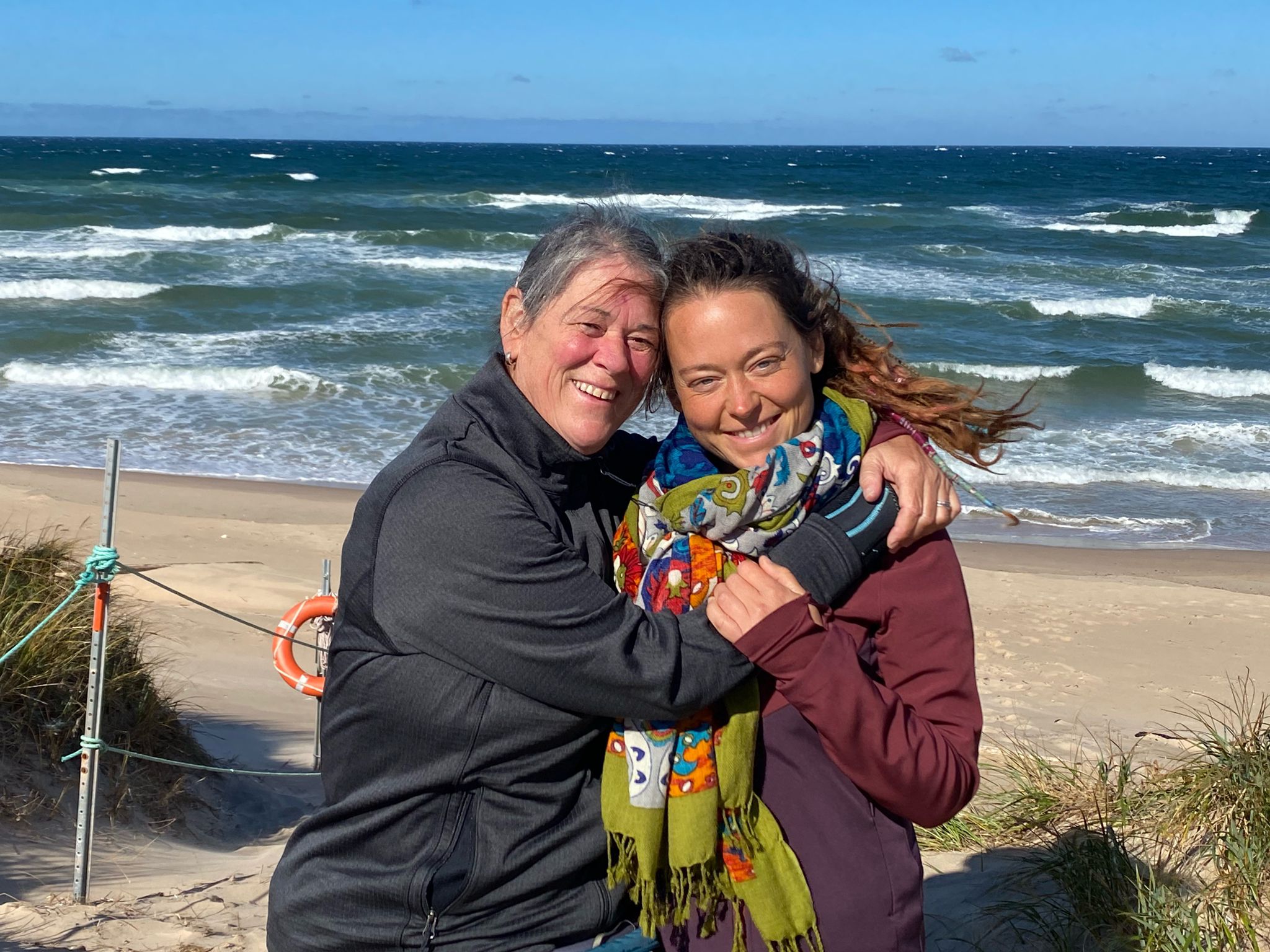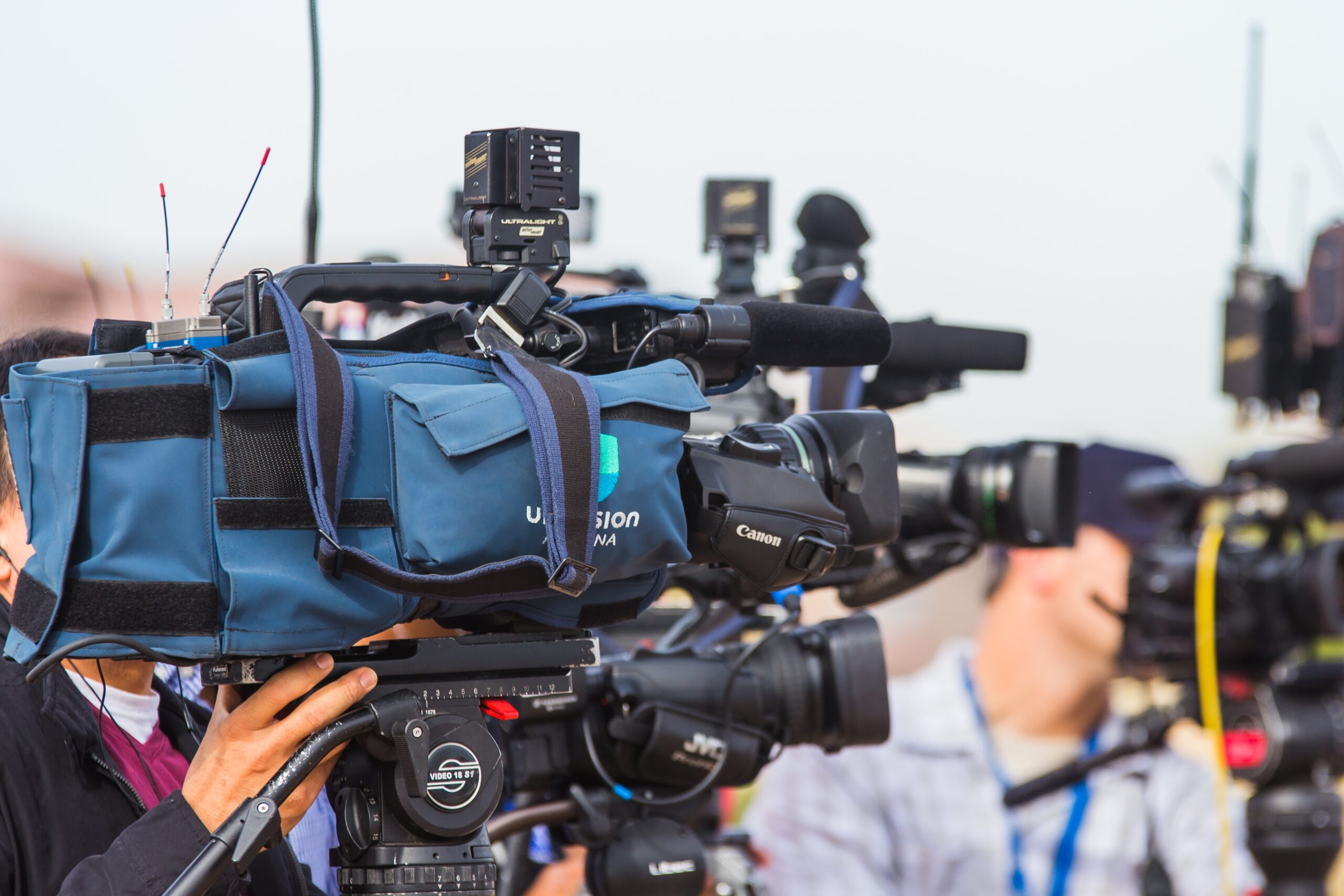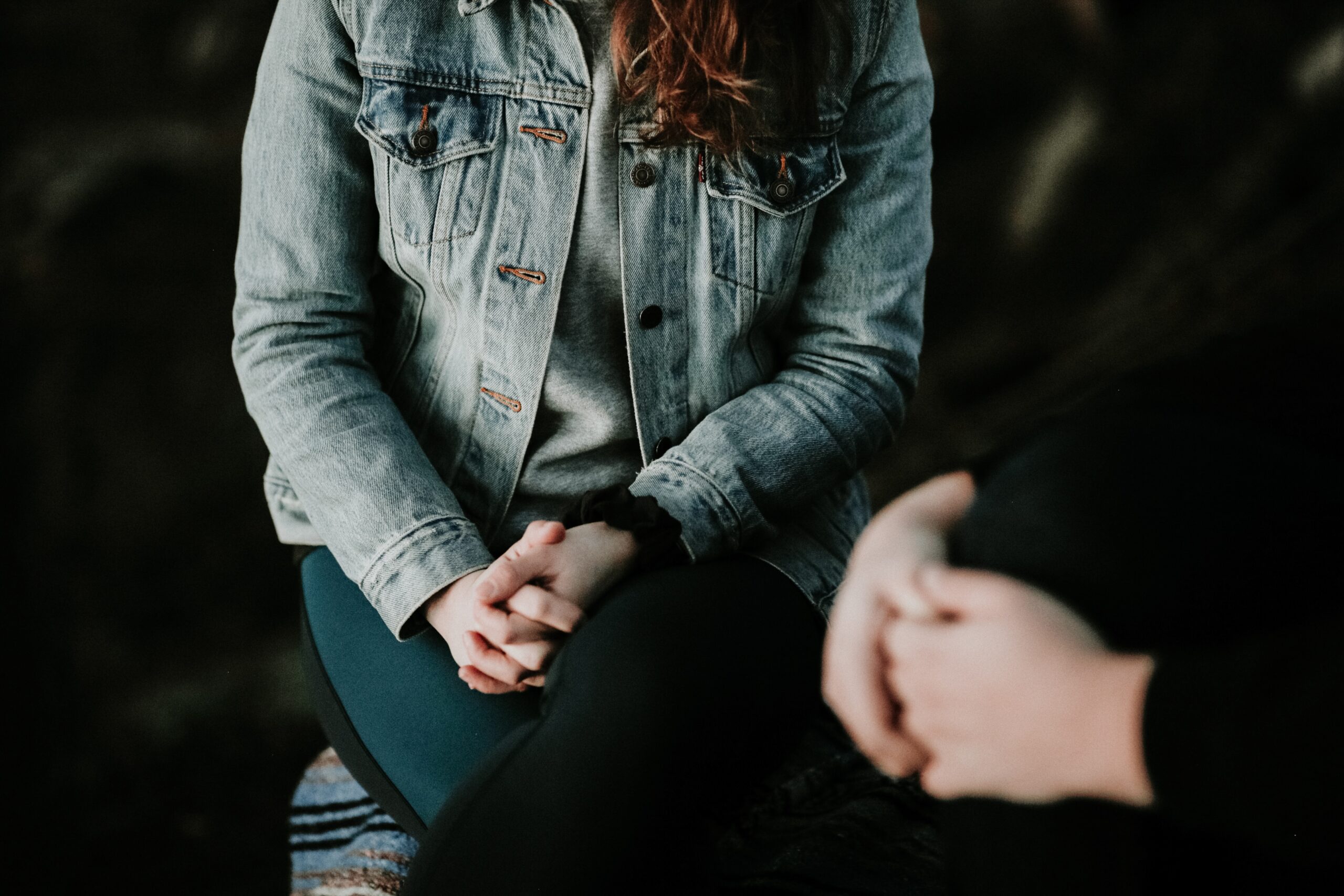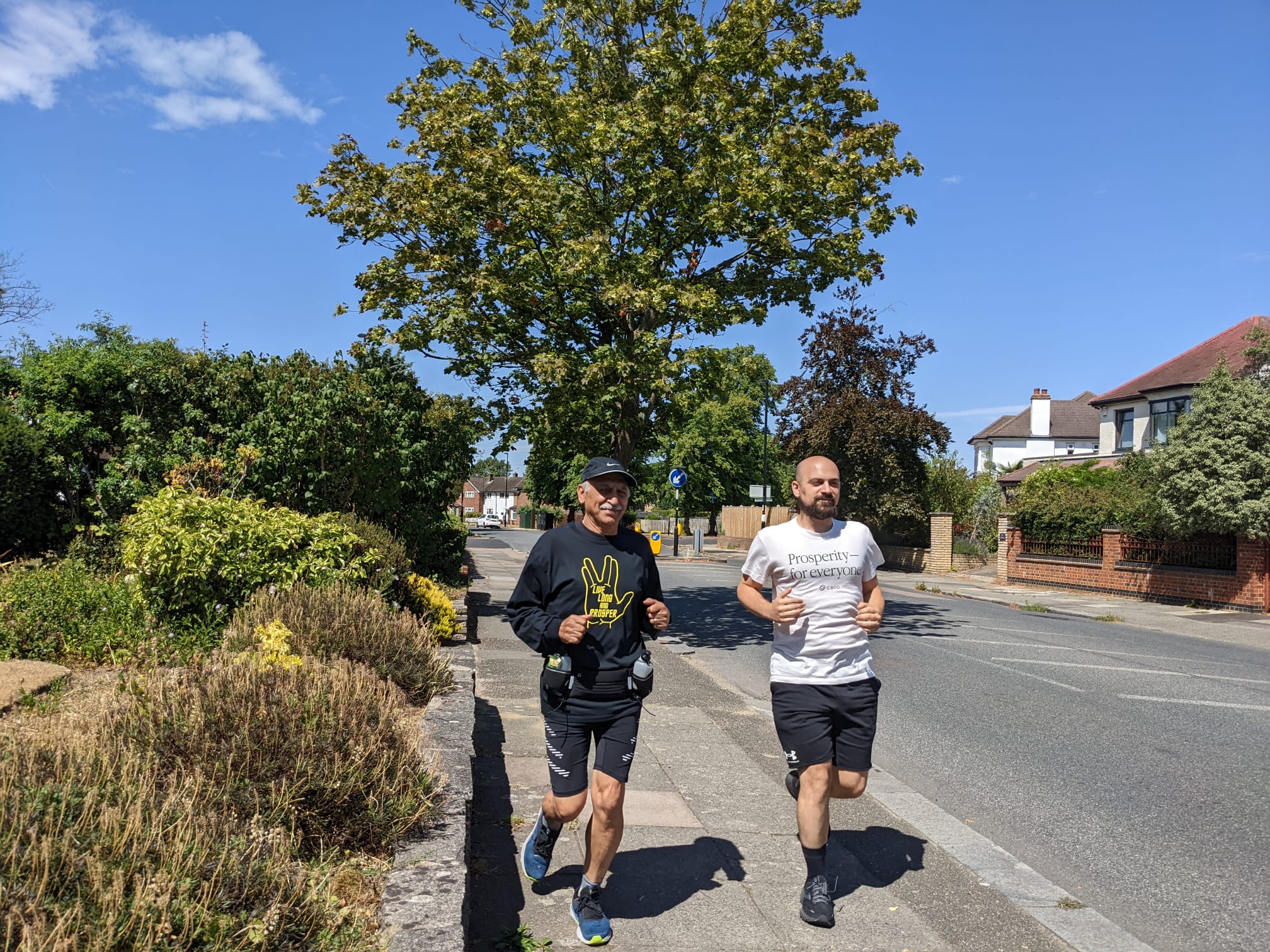
Anoosheh Ashoori: Something good must come out of my experience
After nearly five years, Anoosheh Ashoori is now free from being held in arbitrary detention in Iran. Alongside his son, Aryan, he trained tirelessly to run the London Marathon in 2022 for Hostage International.
Anoosheh spent nearly five years in Evin prison before he was released in March 2022, alongside Nazanin Zaghari-Ratcliffe, back home to his family in Britain.
“It was nearly five years, and those years should not go to waste. Something good must come out of it,” said Anoosheh, talking to Hostage International about his experience.
During his 1,677 days in captivity, the award-winning engineer’s life was turned upside-down, as he constantly questioned how he had ended up in Evin, with ever-deepening concern for his family against the backdrop of ongoing psychological torture.
When he was captured, his captors told him they were taking him ‘to the end of the world’ – the notorious Evin Prison, where he was initially placed in solitary confinement with no understanding as to why he was being held.
“You reach a point – especially when deprived of sleep – where you are on the verge of breaking,” Anoosheh explains.
He experienced the bleakest of lows, which in turn led to a tipping point and a deep realisation that he would fight to find meaning in his suffering.
Keeping mind and body healthy:
Anoosheh’s switch in mindset came as he left solitary confinement, was able to get fit, keep a routine, and set himself goals in a bid to remain sane.
He always tried to keep away from any gossip and trouble by reading and studying and spent most of his days outside in the far corner of a small yard, a place which came to be known as ‘Ashoori’s Corner’. There he was often joined by a small group of fellow inmates, many of whom were fellow academics, who held informal classes for each other in their various subject areas.
Throughout their classes at what they called ‘The University of Evin’, Anoosheh kept his mind active, but he also wanted to build his physical strength, so he started running. His initial efforts found him short of breath after ten minutes but, now after years of running around the prison yard in Iran, he feels on track to attempt the London marathon this October.
Being taken captive:
Anoosheh’s prison ordeal started when visiting his ageing mother in Iran in 2017. He’d timed the trip before a planned knee operation so as not to interrupt the subsequent re-hab and physiotherapy. He had only been in Iran for a few days, when one day, on his way to the market, he was accosted by four men and told to get in their car. He was shown an arrest warrant accusing him of espionage before being blindfolded.
“I went numb, and my heart started pounding.”
Anoosheh, who has never taken any interest in politics, couldn’t grasp what was happening but guessed he was being taken to the notorious Evin prison where he was initially placed in solitary confinement and his ordeal started.
“I was so frightened.”
During his time in the notorious interrogation centre, he was subject to sleep deprivation, lack of bedding, constant threats, long interrogation sessions, and psychological pressure.
Over the years he lived in overcrowded rooms, fighting cockroaches, bedbugs, and rats, seeing some fellow inmates being driven to insanity, and others suffering excruciating psychological pain along with their family members outside.
The bleakest of lows:
“One of the worst things is that during your time in the interrogation centre, you start to believe whatever they tell you – that they are following your family and threatening to destroy them.
“Every morning, I was worried as I was taken to the interrogation room where they showed pictures of my family members and threatened to harm them if I did not cooperate.”
Anoosheh said that his family was being constantly watched. He was even told how their agent liked the pistachio flavour of the macarons his daughter was selling at her patisserie at Greenwich Market, and how one of their neighbours was having work done to their roof.
“I concluded that the only way I could protect my family was not to exist. In that case, the interrogators would no longer have any reason to harm them.”
He was punished for his suicide attempts and his final attempt was through a hidden hunger strike. But the guards eventually noticed Anoosheh wasting away – he had lost 17kilos – and he was consequently transferred to another cell of the same size which they used to call “suite,” but with three other captives already in it. His cellmates talked him into eating.
Marathon training:
In the main prison, they had access to a gym and Anoosheh started training and running. At the same time, he was able to borrow books from the prison library, including What I talk about when I talk about running by Haruki Murakami and, Man’s Search for Meaning by Viktor E. Frankl, both of which helped him get through his ordeal and have been instrumental in helping him aim for his marathon goal.
“Man’s Search for Meaning’ gave me a lot of strength, because when you are going through intense pain and suffering, it’s only when you decide to create some meaning in that suffering, to create some goals, then you start to persevere toward moving towards that goal.”
“You come to realise that although you are going through the same suffering because that suffering is now aimful, it becomes a battle, it becomes a challenge and pumps a lot of energy into you because you are fighting for something nobler.”
“Running for the marathon to raise social awareness was in fact that meaning that I tried to extract from my presence in Evin.
“Murakami’s book gave me a lot of inspiration and I knew that if I persevered, no matter when I was released, I would register to run the Marathon.”
Anoosheh is worried his knees may fail him but hopes that with all the exercises he did, as well as the weight loss, he will manage to complete it.
“The big fear that I have is that I may not be able to finish it, but that is not the point.
“I am using this as an excuse to raise social awareness. This is something that goes beyond any borders. This is about social awareness and fundraising because I owe this to two organisations – Hostage International and Amnesty International.
“If I do not do this, I think I have not achieved anything in my life, it is so important to me.”
Running for Hostage International:
Anoosheh explained how, through a dedicated caseworker, Hostage International supported his wife, Sherry, throughout their ordeal.
“I didn’t know the name of the person helping from Hostage International, but we referred to him as ‘The Saviour Angel’. Only after my release did I meet him and was able to thank him. Although I now know his name, I still refer to him as ‘The Saviour Angel’.”
Anoosheh reflects on how he and his family are adjusting to life back home, “It is quiet, and we are trying to resume as normal life as best we can.
“I used to wake up in my cell after having a nice dream about my kids and wife and it was so real, but I’d wake up to my ‘coffin’.
“I still get flashbacks, but they are getting less and less.
“In prison I had the incentive to try to find meaning in my suffering, and now I have passed that stage, and now I try to find meaning in my joy.”
Anoosheh’s son Aryan added, “The step-by-step nature of the run and the need to focus on the present moment is similar to the day-to-day coping mechanism that we developed throughout our quest for Anoosheh’s freedom.
“The only difference is that we can train and prepare for it this time. We can use this occasion to give back to those who supported us when all prospect of hope seemed bleak.
“Hostage International was the only organisation that connected to our situation on a deeply personal level, which is embedded at the charity’s core DNA through Terry Waite.
“The charity gave us every resource it had available, regardless of the nature of help we required.”
If you feel inspired by Anoosheh and Aryan’s story and would like to support us, please do so here.
July 2022 – updated October 2022
